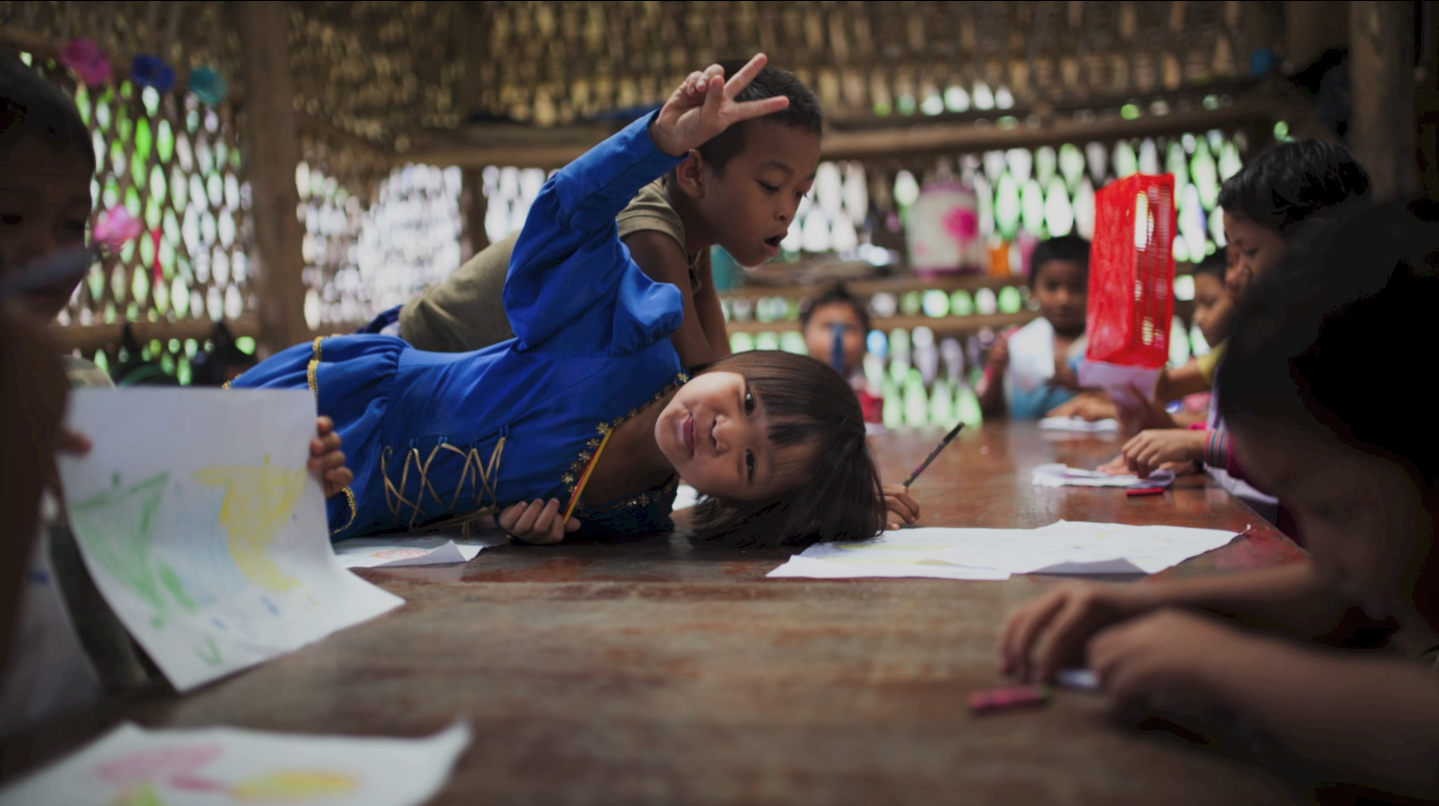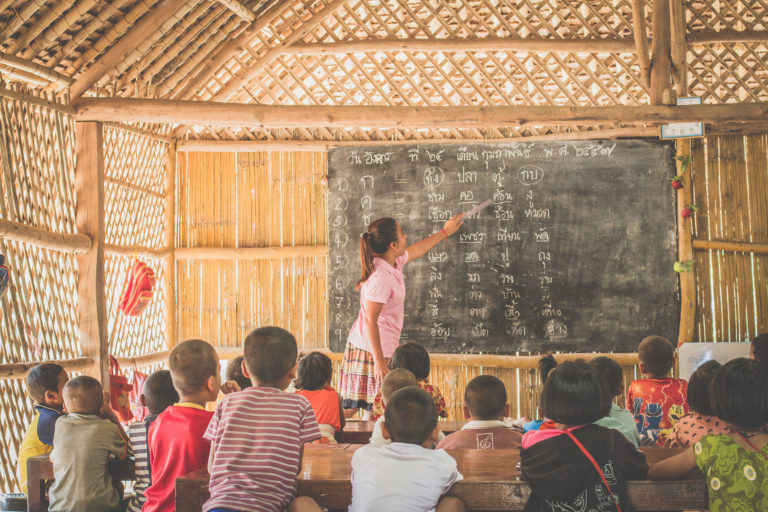Education is the heart of all we do. We strongly believe that all children have the right to formal education regardless of their socioeconomic status. To this end, our core goal is to help stateless migrant children develop the academic skills, social skills, confidence and Thai-language capacity needed to join the Thai public education system.
Education is a key to self-determination and representation of migrant children. By enrolling in formal Thai government education, migrant children significantly improve their eligibility and opportunity for acquiring a Thai national identity card and work permit. Formal Thai ID affords access to local rights and privileges including healthcare, university eligibility, freedom of travel, drivers license, legal employment and worker protection.
Although a 2005 Thai Cabinet Resolution guaranteed migrant children the right to a free education, reports have shown that under a quarter of registered migrant youth are actually enrolled in Thai government schools. Many migrant children are discouraged from enrolling due to a variety of barriers. They may lack the necessary language skills or have had little experience studying in a formal classroom environment. For others, the prospect of joining a Thai school at an older age is too daunting, while some find it impossible to get to a Thai school from their local village.
Our education programs have been designed to support children of all ages from young children entering education for the first time to older youth and young adults re-entering education later in life. We also provide financial support for qualified graduates of our educational programs to continue onto higher education in vocational college or university.
Recent Annual Activities Reports

Free School Elementary Preparation Program
Around 200 children attend the Children of the Forest Elementary School. It runs from kindergarten to Grade 3 and is certified as a Thai government satellite school. We offer daily school bus pick-up services, no school fees, nutritious breakfast and lunch, extra Thai-language classes and a flexible learning and teaching approach that allows non-Thai speakers to integrate into our classrooms. Our goal is to upgrade the social, academic and Thai-language skills of our young students so that they can continue their education at the local government school. Our Free School is the first experience of formal education for many of these migrant children, and our systems ensure that it is a positive one so that these children start and stay in school.

Thai Secondary School Program and Youth Education Program
We support 43 students who are enrolled in Thai government junior high and high school. We cover the costs of school materials, transport and lunch so that these youth can attend local government schools. To date, 100% of the students we have supported through this program have completed their secondary school education. We have had 13 individuals graduate Grade 13 of high school and matriculate to university study, and we have had 6 individuals graduate junior high school and matriculate to technical schools.
We provide Kosanor education, which uses a pared-down Thai government curriculum so that older youth can more quickly matriculate with the same certification as government school graduates. This flexible schooling provides formal education that is accessible to teenagers who are re-entering education quite late and may also have full or part-time employment to support their families. Our Kosanor program also caters to teenagers from our Protection Center who are late-starters in education, much older than their classmates and therefore at high risk of dropping out of school. During the 2017-18 academic year, we had 56 students, aged 15-22, join our Kosonar program, with an additional 16 individuals expressing interest in Kosanor through contact in our safety network.

Outreach Education Support Program
We support three community-run Karen and Mon Schools in remote jungle locations through infrastructure development, school materials, healthcare and teacher salaries. These schools provide education to around 120 school children.
Our outreach team, consisting of a teacher and social worker, also provides regular follow up and support for families at risk of migration. Outreach support can include rice and basic provisions, school fees, transport and across-the-board family support. We monitor and track approximately 200 students studying outside of COF and follow up with any child who has irregular attendance.

COF Higher Education Program
We support higher education by providing financial assistance when possible to enable graduates from our education programs to enrol in vocational college or university. We are currently supporting four youth to attend vocational college and 13 youth, ten of whom are from our protection centre, to attend university.
We believe that every child must be able to access education and receive the support needed to remain in education. Education must not be discriminatory, and we measure our success by the number of youth entering and staying in education, regardless of their age, skill and experience. Over the years, we have helped children complete primary school and complete compulsory high school to move on to brighter futures and greater opportunities.
Recent Annual Activities Reports

Aom recently graduated with a Bachelor Of Social Work from Huachiew Chalermprakiet University, Thailand

